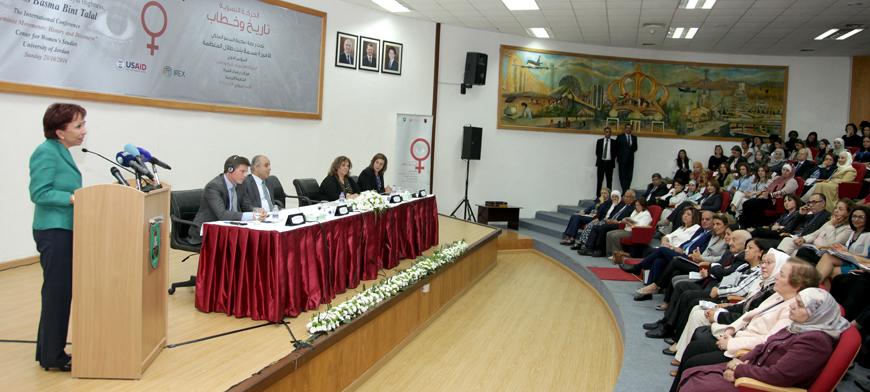You are here
Despite being a woman
By Nickunj Malik - Jun 17,2015 - Last updated at Jun 17,2015
Where feminism is concerned, I would describe myself as a part-time feminist. What that means is, I am all for intellectual and social equality between men and women. I also favour the reasoning that every person is entitled to freedom and liberty with identical civic rights, regardless of their gender.
Additionally, there must never be any discrimination based on ethnicity, religion, sexual orientation, skin colour, culture, or lifestyle. I believe in this, truly. I am dedicated to fighting the ignorance that says people are controlled by and limited to their biology.
But when some definitions of feminism, however warped, go on to suggest that women should never wax their legs, tweeze their eyebrows, buy pretty lingerie or wear lipstick, I call it quits. I don’t think women need to look like men to enjoy the equivalent political, legal, economic and social privileges. Absolutely not! We are one half of the world’s population and we deserve to reach the heights of excellence in what we do, in whichever manner we want. There is no point in removing old boundaries only to impose new ones.
Education is a great leveller but in certain societies we still have to learn to break specific stereotypes before any semblance of impartiality between the sexes can be discussed, in its complete essence. Forget feminism, there are some gender roles that have been handed down from generations, which nobody has the courage to question. For instance: Why do mothers tell their young sons not to shed tears even when they are hurt because ‘boys never cry’? Why are they encouraged to play with toy cars or trucks and kept away from dolls? Why are daughters expected to help in household chores but not sons?
In many multinational companies, why are men paid more than women, when they occupy the same position professionally? Why are work/life balance speeches always directed towards working mothers? Why is it that a father is not given paternity leave to look after his newborn? And, in the rare case, where he is indeed given that opportunity, why do his friends and family secretly sympathise with him?
These and many such typecasts have to be immediately dislodged by the educated class, before there is mutual respect and dignity between everyone.
Narendra Modi, the Indian prime minister, made a very pertinent remark in one of his speeches where he asked why is it that our teenage daughters and sons have different curfew hours for coming home after partying? Also, why do we ask our daughters where they went in the evening, and not our sons?
Such questions emerging from the freshly elected head of state, of the largest democracy in the world, were very refreshing. The most die-hard feminists in my home country were nearly ready to make him an honorary member of their tribe.
And then he was invited on an official trip to neighbouring Bangladesh. While praising the efficiency of Prime Minister Sheikh Hasina, the Indian PM delivered a faux pas. Despite being a woman, she was doing an exemplary job of fighting terrorism, he told her condescendingly.
An intended compliment came out as a patronising remark and the entire social media ignited with vitriol, overnight.
“Who carried these heavy suitcases from the car,” my husband asked, lowering the newspaper.
“I did,” I admitted.
“Why didn’t you call me?” he queried.
“I managed,” I said.
“Despite being a woman?” he probed, raising an eyebrow.
“Because of being one,” I answered.
Related Articles
AMMAN — In light of the political situation in the region, feminism should be addressed as a key element in the quest for social justice and
Inkshedding Gender Politics: Academic Activism in Feminist TheoryRula Quawas, editorAmman: Azminah, 2017Pp.



















